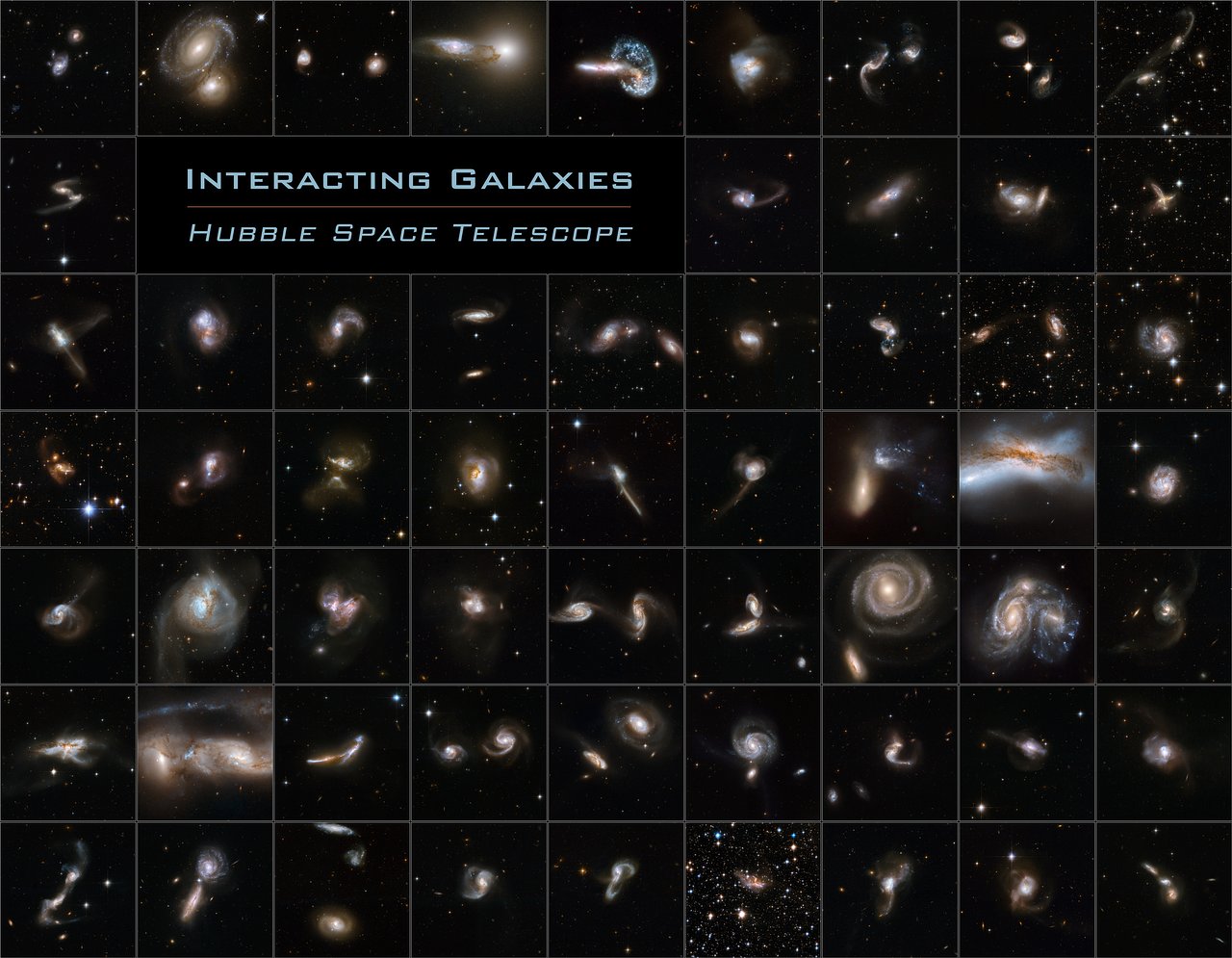You may have caught this making the rounds as of late: Astronomers Predict Titanic Collision.
It's been known for some time that Andromeda and the Milky Way are moving towards each other, and the end result somewhere down the line would be a very large elliptical galaxy (Fun Fact: galactic collisions always end in elliptical galaxies, meaning that spirals are slowly dying out). It was possible that the galaxies would whip and distort and orbit around each other for a rotation or two before eventually settling down as one. It's the kind of thing that takes hundreds of millions of years, but still happens...well, fairly often actually.
(More hot, gassy, galaxy-on-galaxy action here)
So the news here is that we've done some very, very precise calculations. It's actually quite hard to tell how fast and in what direction celestial objects are heading. The results? We are heading right for each other. Collision in T minus four billion years.
Oh my yes.
There is good news! The good news is that by then, the oceans will have evaporated, the atmosphere would have been blown off, and life on Earth probably wouldn't exist anymore.
Wait, no, that's not the good news. Dammit. Ah, here it is: yes, the good news is that while we are speaking of galaxies 'colliding', it is very unlikely that actual solar systems would do anything of the sort.
Galaxies, despite their appearance, are mostly empty space. Really empty. Consider, the nearest star to us is about 4 light years away. The average density of stars in our galactic neighborhood is about a star per cubic light year (our solar system is about 0.0006 light years wide). This means that, while our solar system's position relative to other stars may be distorted, even our planetary orbits have little chance of being directly effected.
There is a lot of gas around, however. And when you get one galaxy rubbing against another galaxy, their gaseous forms getting all hot and excited when they join together, as chaotic and blind as any prom night, you get...well, what do you think you get?
You get babies. Collisions like this are a prime generator of stars.
See? LOTS of good news!


No comments:
Post a Comment